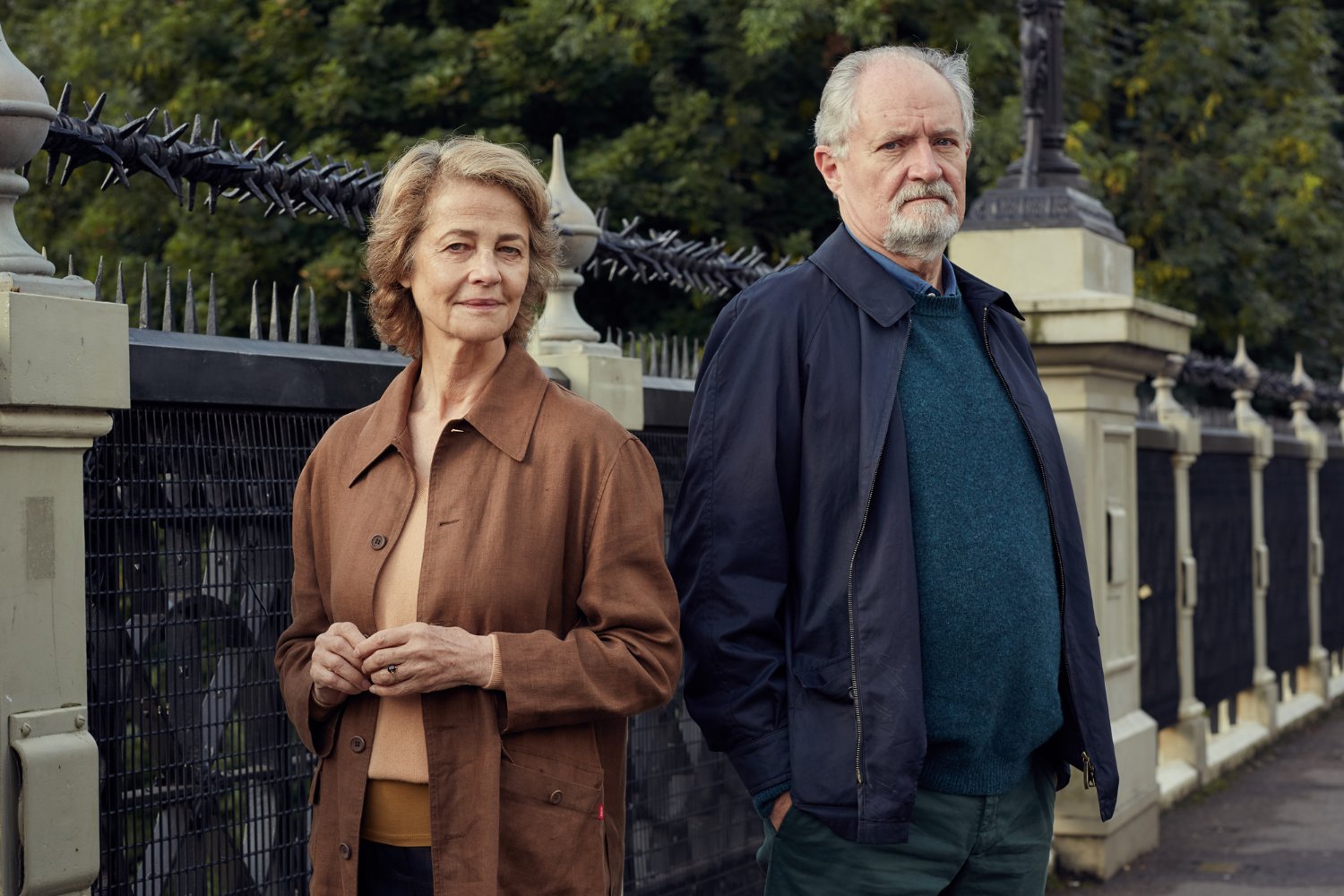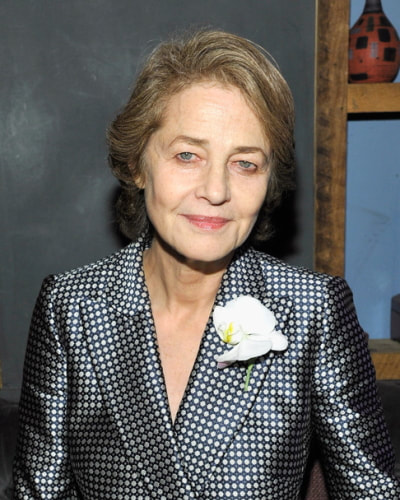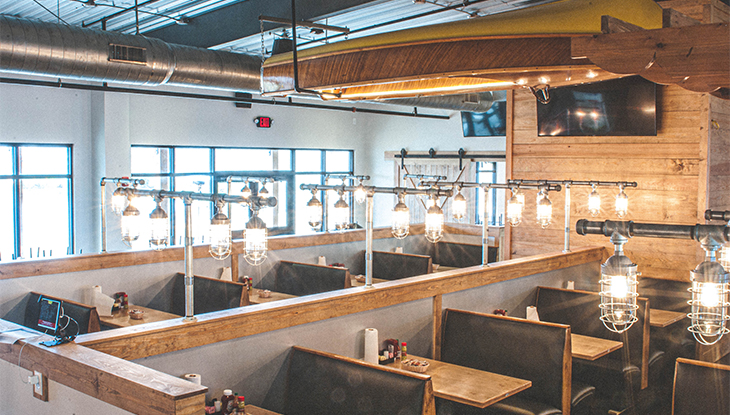Table Of Content

Just like Juniper, Dune began with Denis Villeneuve wanting to meet with me. I knew all about Dune because way back when, I was being considered for Dune by Alejandro Jodorowsky, and my husband at the time, Jean-Michel Jarre, was wanting to do the music, so we were all talking about that for quite a while. And Dune was this very popular, cult book in the 1970s, so that started then, and then David Lynch did his, but I wasn’t in that. When Denis wanted to meet me, I just thought, This is lovely!

Movies
Jim Jarmusch wraps filming in Dublin with Cate Blanchett The Irish Film & Television Network - The Irish Film Television Network
Jim Jarmusch wraps filming in Dublin with Cate Blanchett The Irish Film & Television Network.
Posted: Wed, 31 Jan 2024 08:00:00 GMT [source]
My husband at the time, Jean-Michel Jarre, really wanted to do the music. I loved this book and I loved the character of Jessica. He was unable to do it, and the next one was the David Lynch one, which I was not in. [Laughs.] Denis Villeneuve, I’ve been admiring his work, he makes very big films but he has a European heart — he’s Canadian, but he has a great intimacy in the way he works. When he asked me to do that, it seemed to make sense.
(2022 TV Movie)
That said, Rampling's most intense role was, arguably, that of a concentration camp survivor who is reunited with the Nazi guard (Dirk Bogarde) who tortured her throughout her captivity in 1974's The Night Porter. Charlotte Rampling grew up in England in the 1940s and 1950s, spending ample time across Europe. In her late teens, she began a career as a model, which quickly led to her being noticed and appearing many movies and TV shows. She first appeared an extra in The Beatles movie "A Hard Day's Night" (1964) and her official credited debut was a year later in the British comedy "Rotten to the Core" (1965). A few years into her acting career, she became a favorite of the '70s European indie film scene, with notable controversial roles in "The Damned" (1969), "The Night Porter" (1974), and "Max, Mon Amour" (1986).
(2021 TV Movie)
It’s the kind of role we’re used to seeing from the great Rampling, who received her first and only Oscar nomination stateside for the British “45 Years” but has a trove of César and European Film awards on her mantle. She’s remained defiant of mainstream studio productions — other than dipping into IP territory with “Assassin’s Creed” and “Dune” — preferring outside-the-box European work. I came here into the movies almost by chance,” said Rampling, who began as a model before being cast as a Swinging ’60s ingenue in 1966’s “Georgy Girl” opposite Alan Bates and Lynn Redgrave. It’s really just what comes up that affects me.

Roles originally offered to Rampling
Her most infamous role, in Liliana Cavani’s The Night Porter, about the sadomasochistic relationship between an SS officer and a concentration camp survivor, was received with dismay by many critics, and banned in some countries. Was she trying to be provocative, or seeking out dangerous parts? “It’s always provocation, or daring, or wanting to ignite things, or wanting to make things live. Hannah’s director, Andrea Pallaoro, had always imagined Rampling in the part, and no wonder.
Denis Villeneuve producing Dune TV series spinoff - Critical Hit
Denis Villeneuve producing Dune TV series spinoff.
Posted: Tue, 11 Jun 2019 07:00:00 GMT [source]
After participating in several documentaries and the espionage thriller Spy Game (2001), Rampling starred as a conservative mystery writer in director François Ozon's Swimming Pool -- the role would win her an award for Best Actress from the European Film Academy in 2003. After her success with Swimming Pool, Rampling went on to play supporting roles in The Statement (2003) and Immortel Ad Vitam (2004). When Charlotte Rampling first read the script for her new film, Juniper, she decided to put it to one side.
Steve Carell Joins Tina Fey in Netflix Comedy Series ‘Four Seasons’
A 17th-century nun in Italy suffers from disturbing religious and erotic visions. She is assisted by a companion, and the relationship between the two women develops into a romantic love affair. When his ex wife gives birth to a baby girl with severe liver issues, Rolf gets involved in searching for an organ donor. Rolfs search leads him and his colleague Neel, into making a gruesome discovery. Simon and Mark are joined by the extraordinary Charlotte Rampling to discuss her new film 'Juniper'. Mark reviews the highly anticipated psychological drama 'Blonde', 'Don't Worry Darling', 'Catherine Called Birdy' and 'Juniper'.
She made a dent in American film as well, with a role in the Woody Allen film "Stardust Memories" (1980), the Sean Connery-starring sci-fi flick "Zardoz" (1974), and the Raymond Chandler adaptation "Farewell, My Lovely" (1975). While Rampling's legacy was somewhat set in stone through her work in the '70s and '80s, she slowed her acting pace down as the century closed. In the early 2000s, she returned to more prominence, primarily in the works of Francois Ozon such as "Swimming Pool" (2003) as well as more mainstream fare like "Spy Game" (2001) and "Babylon A.D." (2008).
“I discussed it internally, but boy, do you need help afterwards.” Where did she get that help? “You get professional help from psychiatrists and psychotherapists, reading a lot of philosophy and literature.” She says the book The Road Less Travelled by M Scott Peck helped greatly. Rampling is in her apartment in Saint-Germain-des-Prés, “which is just like the old Chelsea that I loved”. She is wearing shades, but takes them off to reveal those famous hooded blue-green eyes. “Juniper” takes a nonjudgmental approach to Ruth’s alcoholism — including the pitcher of gin she foists upon her grandson daily for a refill.
Part of it is asking yourself how you get into the mind of a younger actor, but it comes very naturally because everyone is human. Unless you’re in a place where you don’t really want to learn, you don’t really want to listen to others, then there’s always potential. When you’re working with the other actors and the director and the crew, it’s very intimate—you’re all intertwined for a certain period of time, and you get to know some of them better than you do your real friends because you spend so much time sitting around and talking and eating together.
In 1975, Rampling starred opposite Robert Mitchum in the post-noir detective thriller Farewell, My Lovely, and offered a passionate rendering of a violent heiress confined to a mental institution in the French/Italian/German collaboration La Chair de l'Orchidée. The actress' success continued to grow throughout the latter half of the 1970s, and in 1980, Rampling played a lead role alongside Woody Allen in Stardust Memories, the follow-up to the much-hailed Manhattan. Shortly afterward, Rampling could be seen as the deceitful Laura in director Sidney Lumet's courtroom drama The Verdict (1982) with Paul Newman. Rampling spent much of the mid-'80s filming in Europe; one of her most notable performances during that time was as the mysterious mistress of a murder victim in the French crime thriller On Ne Meurt Que Deux Fois, though she would return to America for Alan Parker's Angel Heart. The heavily praised voodoo-themed crime thriller featured Rampling as an ill-fated woman whose heart is irrevocably extracted from her body.
An outcast, alcoholic Boston lawyer sees the chance to salvage his career and self-respect by taking a medical malpractice case to trial rather than settling. During the 1970s, car-delivery driver Kowalski delivers hot rods in record time, but always runs into trouble. A young woman receives a cryptic letter from her recently deceased father, which sends her on a journey into the past and leads to a discovery that will change her family forever. The people behind the network 'Bliss' have been found and Minna can be reunited with her mother.
She briefly studied Spanish at a college in Madrid before dropping out in 1963 to travel with a cabaret troupe. Upon her return to England in 1964, she modeled to support herself while learning the craft of acting at the Royal Court Stage School. The character's combination of icy beauty, open sexuality, and disregard for responsibility - which the press dubbed "The Look," per a comment from her frequent co-star, Dirk Bogarde - would serve as a template for many of her future performances. Her most substantive work during this period, however, came in partnership with French director Francois Ozon. Their first collaboration, 2000's "Under the Sun," gave her talent a magnificent showcase as a woman crippled by grief and doubt over her husband's mysterious disappearance.
“Another thing about acting is that I got bored very quickly. I’ve got a very, very restless character … It’s a beast.” Does she know where it comes from? In her hotel room, she pulls an armchair around to face mine, folds her arms, and sits forward, legs apart, as if she means business.



No comments:
Post a Comment